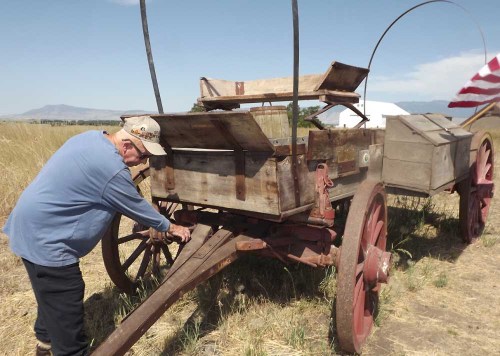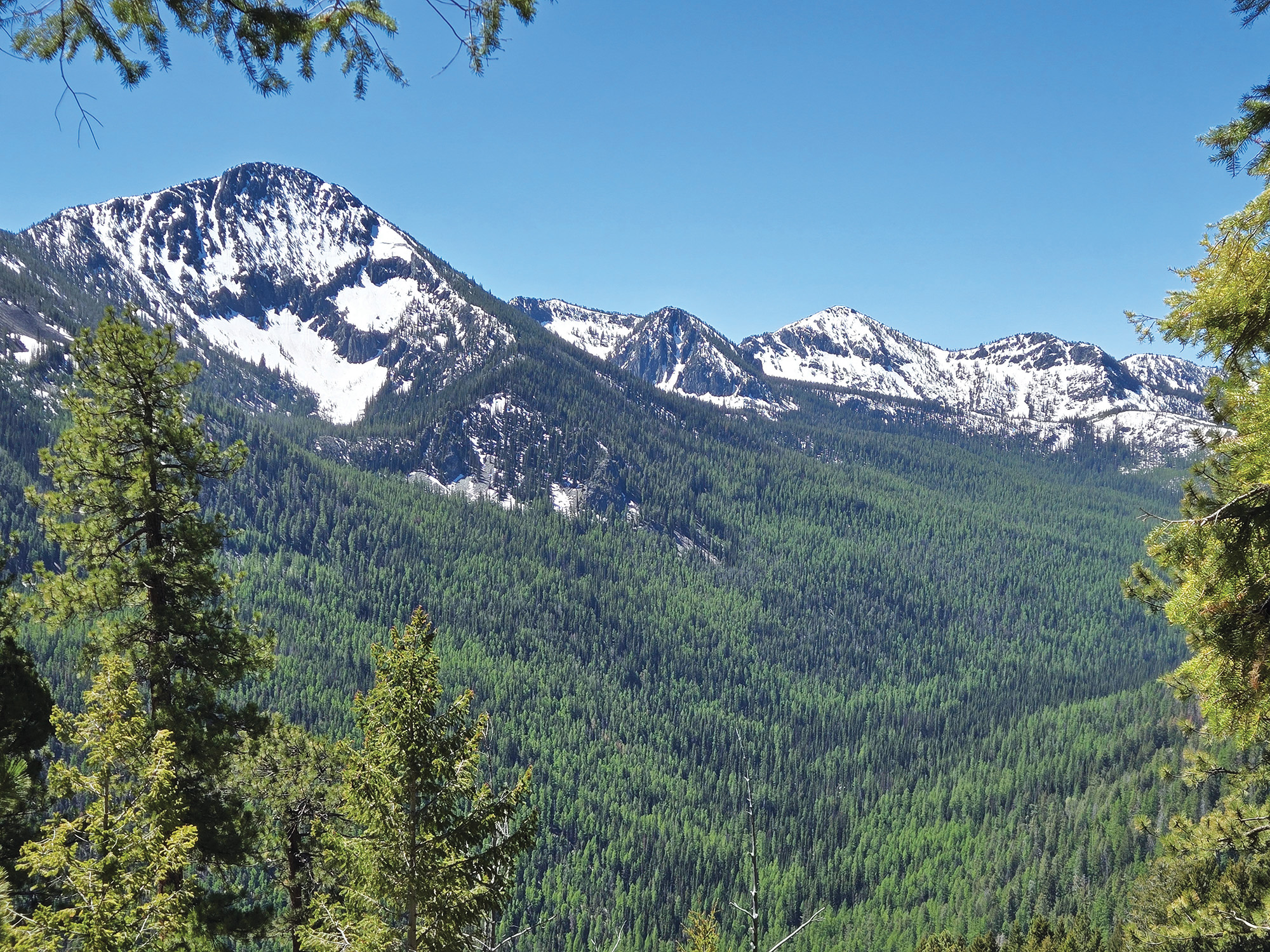Oregon Trail site in rural Union County completed
Published 8:00 am Friday, July 31, 2020

- {p dir=”ltr”}Ronnie Allen of La Grande checks out this replica of the kinds of wagons that came over the Oregon Trail. It was originally a farm wagon before local ranger Dale Counsell renovated it.{/p}
LA GRANDE — A 4-inch steel sight tube is helping people in rural Union County look deep into the past.
The new immovable sight tube is making it easier for visitors to the Lower Ladd Canyon Oregon Trail interpretive site to see exactly what pioneers did at least 170 years ago.
Trending
The interpretive center is a mile from the base of Lower Ladd Canyon Hill along Hot Lake Lane. The sight tube has no magnifying glass, but people looking through it will instantly see this route, which La Grande historian Ronnie Allen identified. Allen created the Lower Canyon Oregon Trail site.
“The pioneers, after coming down the hill, walked directly to here (where the interpretive site is),” Allen said.
Looking through the tube, the scene reveals three pine trees, which were not present during the 1800s but today make it easy to identify the Lower Ladd Canyon Oregon Trail route.
Gail Carbiener, preservation officer for Oregon-California Trails Association, said the sight tube is tremendous help to people stopping at the Oregon Trail center on Hot Lake Lane.
“When people are standing there they don’t know where to look. This shows them were to focus to see the Oregon Trail,” said Carbiener, who lives in Central Oregon.
Allen’s Oregon Trail site was officially completed Monday, July 27, and is filled with artifacts that will educate visitors. They include a portion of a wagon that crossed the Oregon Trail in the 1800s.
Trending
“It is a real emigrant wagon wheel,” Allen said.
The wheel, which Willie Myers of La Grande donated, has a thin metal rim and wooden spokes that look too fragile to support a small fleet of Matchbox cars, much less the weight of a wagon filled with a family’s possessions.
“They are about ready to turn to dust,” Allen said.
Another new addition is a wagon made from century-old barn wood. It was a farm wagon before Dale Counsell, a rancher who lives nearby on Pierce Road, renovated it to look identical to an Oregon Trail wagon. The renovated wagon’s features include a front seat like the ones Oregon Trail pioneers had in the 1880s.
“Wagons (on the Oregon Trail) did not have seats until then,” Allen said.
The wagon also has a wooden barrel like the ones pioneers carried to save water for their oxen.
“Oxen were critical for pioneers,” Allen said. “If they lost their oxen they could not continue.”
The shell of the wagon, when it was new, probably could float a family. Allen said many pioneers took off the wheels then boarded the wagons to float down rivers or across them.
Another feature of the wagon is a wooden toolbox with a leather strap. The toolbox is empty, but Allen said Oregon Trail travelers had theirs filled with axes and knives.
No actual wagons pioneers used to travel across the Oregon Trail still exist, Allen said. He explained by the time pioneers made it to Oregon, most wagons were in terrible condition and virtually useless. Those that were functional were used for farm work until they were worn out.
“After 10 years (of farm work) they were totally destroyed,” Allen said.
The site of the Lower Ladd Canyon Oregon Trail Site is about 2 miles west of Hot Lake.
Allen has determined the site is exactly where revered Oregon Trail pioneer and devotee Ezra Meeker dedicated his Lower Ladd Canyon marker on April 11, 1906. The marker replica is 5 feet west of where Meeker dedicated the original maker, said Allen, who has analyzed photographs of the 1906 dedication.
Today, this site is part of the Oregon Department of Fish and Wildlife’s Ladd Marsh Wildlife Area. ODFW granted Allen permission to set up the Lower Ladd Canyon Oregon Trail interpretive site.
The work Allen has done to create the Lower Ladd Canyon Trail site has not gone unrecognized. The northwest chapter of the Oregon-California Trails Association has given Allen its Distinguished Service Award for his work to build the interpretive center. The OCTA plaque salutes Allen for “exceptional efforts to preserve and promote the Oregon Trail.”









